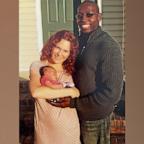Experts Say CPR by Untrained Bystander a Good Idea
Dec. 22 -- MONDAY, Dec. 21 (HealthDay News) -- The risk that an untrained bystander can do harm by giving cardiopulmonary resuscitation, or CPR, to someone who collapses in public is almost vanishingly small, a new study indicates.
And so the dispatchers who send emergency medical help when 911 is called should routinely tell the caller to start CPR, said Dr. Thomas D. Rea, an associate professor of medicine at the University of Washington, and lead author of a report in the Dec. 21 online issue of Circulation.
"There have been concerns expressed by laypeople and dispatchers that doing CPR might cause damage," Rea said. "Our study shows that you can help the person at risk and the chances that you can injure someone who is not in cardiac arrest are very, very small, and those injuries are not serious."
Rea and his colleagues used data on 1,700 adults who received CPR in the King County emergency response system between June 2004 and January 2007. Rea is program medical director of the King County program. Of those, 55 percent were in cardiac arrest and 45 percent were not. Nearly half of those not in cardiac arrest received CPR from bystanders.
The data showed minor problems -- discomfort or injuries in 9 percent to 11 percent of cases -- but only four fractures, three due to chest compressions administered during CPR, one from repositioning the individual for CPR.
And while this study did not measure the benefits of giving CPR even when it eventually turned out to be unnecessary, "many studies have shown that the odds of surviving cardiac arrest increase by 20, 30, 100 percent, depending on what study you look at, when CPR is given," Rea said.
"The key finding here is that when a well-meaning member of the general public starts CPR and the victim is not in cardiac arrest, it will probably cause no injury at all," said Dr. Michael Sayre, an associate professor of emergency medicine at Ohio State University, and a spokesman for the American Heart Association. "The study reassures me that rescuers are rarely going to do any kind of injury."




